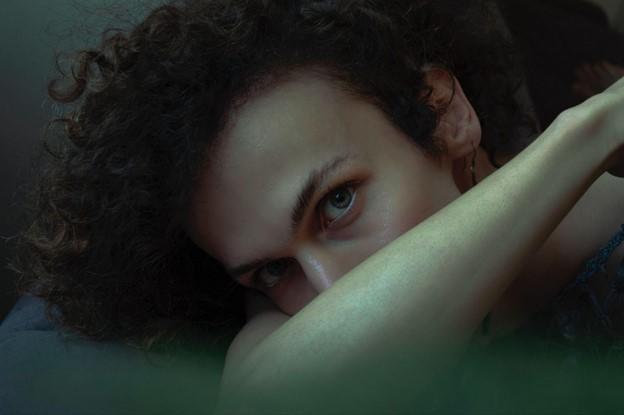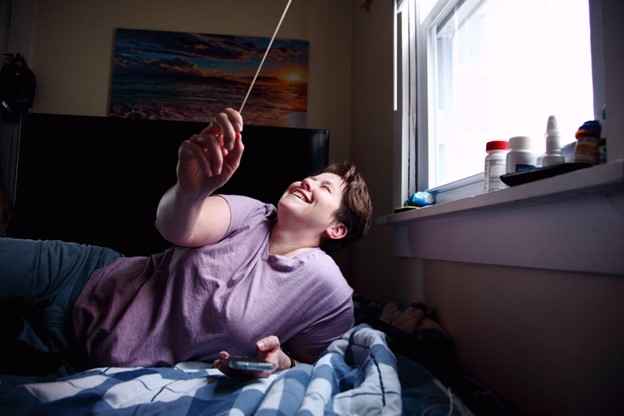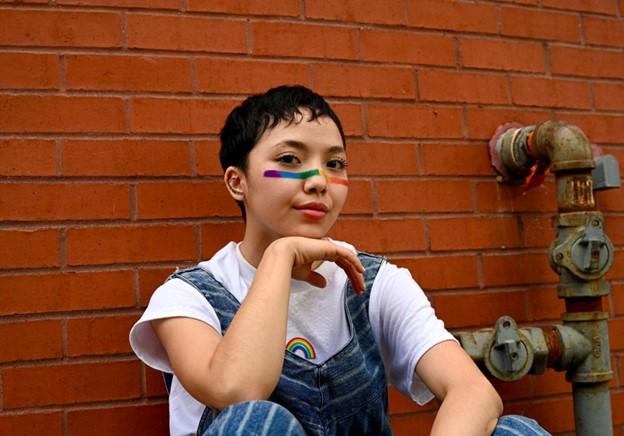Are Mother Wounds exclusive? Picky? Gender-specific?
I don’t think so, actually, I know so. Mother Wounds are not only “sex blind” but they will be different for each and every one of us – whether we are male, female, trans, or nonbinary/gender-nonconforming.
A mother wound can happen in the presence or absence of a mother, either way, there is a relationship involved. A promise broken, a hope dashed, a baby not soothed, a child neglected, a teen ridiculed. These are the internal wounds suffered at the hands of those meant to care for and guide us.
So, even as my Overcoming the Mother Wound program has been focusing on women, I am finding a greater need to be much more inclusive than I have been. Diving deeper and deeper into the effects of a mother wound, as well as the healing benefits from this work, I am inspired to expand my offerings to adults of all genders seeking to heal their Mother Wound.

What About the Sons?
Let me tell you about Fred. He was a bright, energetic, and generous boy. Mom and Dad had what he describes as the perfect life. Two more siblings came after him and he “gave” them his bedroom, wanting to help out. This simple, kind-hearted act was repeated and praised again and again.
Fast forward to his teen years, Mom, wanted more out of her life and had an affair that ended the marriage, splitting the home in two.
The affair failed and the marriage never recovered, even though she and Dad tried to reconcile.
Fred, having stayed at a job he hated for years until he got fired, struggles now to find meaning in his work or find another job.
Fred suffers from depression, as does his mother, which he thinks is another way to stay near her, emotionally. Maybe so.
His Mother Wound has to do with a merging with his Mom that makes it difficult to see the Mother Wound. He is very busy protecting Mom from having her feelings hurt, taking responsibility for her life, and thus avoiding his.
This mother wound is common in men. They become the soldiers and the warriors, especially if Dad is absent (or always working). They become the “man” of the house. Taking on more than they are ready for and are often valued for their sacrifice. I call this the Big Little Man Mother Wound.
One of the problems with this ‘adorable’ wound, is that this man thinks he is big but feels small and ineffective in the ways of the world. He is often frustrated with life and living. “I know what the best way to do it is but no one listens to me,” no one notices him in the way he wants to be noticed. He has a hard time believing he is valuable for who he is and often feels little in a man’s body, and may be unaware of his Big Little Man Wound.

Traditionally, girls are treated as being more fragile, sensitive, and needy. While boys are thought to be rough and tough and strong. We now know that this is false but tradition lingers on in our psyche. A boy crying when he scrapes his knee is fine when under the age of 5 and then it becomes less acceptable. No one may say something, but depending on who you are with and where you are, there is an air of unacceptability.
Boys, people, are sensitive beings. Somehow boys are expected to be different. We’ve made huge advances with tolerance and acceptance, but my sense is that an expectation lingers.
Boys struggle to be vulnerable – women can too don’t get me wrong – but we forget the layers men endure. Sometimes unspoken, and sometimes not.
I think about Billy. He lived with his 2 younger siblings and would take care of them while his mother would go out to “work” and get high. When she would come home after days away she would be affectionate and appreciative of Billy, who at 5 years old learned to make peanut butter sandwiches so he and his 2 younger siblings could eat. This is an extreme case, and Billy developed psychosis and needed medication after Mom was arrested and the children went into Foster Care. Billy believed it was his responsibility to keep the family together.
Billy’s wound is the Tough Guy Mother Wound.
Back to vulnerability. Take Nick. His mother always told him how much she loved him, but when she would take him out it was with his Aunt or a friend and he was ignored and expected to know what to do and how to act. Mother would later scold him for being so quiet and not being more involved. Nick was confused and hurt and had no one to share this with. He had an older sister, but she was the golden child, talented in music and academics. She had no interest in her younger brother from the day he was born and would side with her mother when Nick would be socially awkward.
Looking at Nick’s history through his Mother Wound, you will see he was given mixed messages by being praised and then neglected and scorned, in addition to being set up to be in competition with his sister for not being like her.
Meanwhile, Nick enjoyed reading and playing “nerdy” electronic games alone in his room.
There was no place for Nick. His mother and father showed no interest in him, only in their own interests which aligned with his sister.
Nick’s wound is the Abandoned One Mother Wound.

What if I’m Not Cisgender?
So far I’ve discussed Daughters (previously) and Sons (above). I do not want to ignore others who, since birth, have identified otherwise. Specifically on trans/nonbinary identities.
These mother wounds are even more complex because each child embodies what both sons and daughters would go through at the same time and may not have a sense of where to belong, internally. Without the assurance, acceptance, and a felt connection with the body that grew you, it can add another layer of feeling ‘othered’ by your environment as well.
As children, in our little bodies, fresh from coming out of our mother’s body, our connection is so deep, so unconscious. We know her tone of voice, the way she moves, her scent, her breath, and even her heartbeat. Most of us were one with her for almost a year.
Aspects of our gender identity include what we are assigned at birth, how others treat us, and how we perceive our bodies and ourselves. These elements have a vital impact on how and how much we will identify as male, female, daughter, and/or son.
This wound is more layered and complex to tease apart as a result of less modeling throughout our families and society, as things are often put through a cis, binary lens. There is potential here for confusion, rejection, and lack of acceptance from those meant to nurture and care for us.
Early in our development, as children, we see ourselves as extensions of our mothers, and gradually over time, we begin to form a separate identity. A parent’s response to a child coming into their own identity is a cornerstone to how that child feels about themselves. You see, as babies we rely on our environment to teach us who we are and how we fit into the world.

The loving gaze of a mother or the tone of disdain from a father feeds our hungry psyche searching for confirmation of who we are. If this person who gave birth to me and nursed me now treats me differently– and I don’t understand why– I am bound to be confused as to why I’m not tolerated. We don’t have that adult mind with us to help shed light.
Imagine, a mother being critical of their gender-nonconforming child, what else would that child know but to be critical of themselves?
Let’s talk about Cedar. This adult is nonbinary and uses They/Them/Theirs pronouns. Based on Cedar’s experience with their primary parent, likely the Mother, has influenced how Cedar sees themselves and interacts with others. Their Mother often brushed young Cedar’s emotions under the rug, told them they didn’t know anything, and that they were lazy and worthless.
Just as with any child, Cedar is confused and believes their parent to be right. As Cedar grows and interacts with other children at school, they display difficulty in making decisions, showing preferences for games, and feeling overall overwhelmed and lost. As taught by their mother, Cedar grew to believe their own instincts are not to be trusted. They were never provided the support to believe in their young self and take positive risks. They often looked for reassurance in others as they grew, causing them to not believe in themself until adulthood.
Then we have Kai. This adult uses They/Them pronouns as well yet also accepts He/Him/His. Young Kai was seen as the helper. They were the oldest of their siblings and found that they received encouragement and love when they helped take care of their siblings while taking a load off the Mother. This looks like the Tough Guy Mother Wound from Billy’s story, even if Kai was AFAB, assigned female at birth. So now as a trans-masc adult, Kai believes that their worth is dependent on how they can be helpful to others, instead of their inherent worth.
I only addressed the assigned gender of one of these examples to prove that these wounds are less about gender expression and more about the result of parental treatment. Of course, there may be a gender wound, but we are discussing the results of narcissistic parenting.
This is why, as adults, it is so powerful to determine what comes from the Mother and what comes from within our own selves. This type of reflection is lifesaving and, if anything, individuals in the trans/nonbinary community have had to do this on their own as a method of survival. Chosen Families have become a powerful method of healing; finding people you align with, who love you unconditionally, and help you heal wounds and create new, powerful memories.
People who are cisgender could likely take some tips from those who don’t identify how they were assigned at birth. They understand what it means to define and redefine themselves completely. To truly know yourself is to heal those deeply embedded childhood doubts.
What I am getting at, is that no matter your gender expression, having a narcissistic primary parent can negatively impact how we interact with others in the future. You, the child, are not at fault for how your parent criticized you. This is about the parent and how their narcissistic personality has caused a wound.

Conclusion
Having a difficult parent, especially a difficult mother, can force us to grow in ways that are uncomfortable. But that is the journey to reaching a place of comfort in ourselves. Our mothers may have sent us into the world with a narrow set of skills and a critical way of looking at ourselves, however, it’s what we do with it and how we work with it that matter.

Mari Grande is a Licensed Clinical Social Worker and a Creative Arts Psychotherapist in New York, New Jersey, California, and Florida with 20+ years of experience working with individuals and groups. She specializes in using creativity to help people heal from traumatic events.
- Mari Grandehttps://marigrande.com/author/admin/
- Mari Grandehttps://marigrande.com/author/admin/
- Mari Grandehttps://marigrande.com/author/admin/
- Mari Grandehttps://marigrande.com/author/admin/



